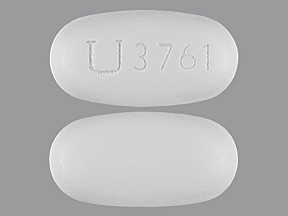DELAVIRDINE 100 MG DISPERSIBLE TABLET - ORAL
PHONETIC PRONUNCIATION: (deh-LAV-er-deen)
COMMON BRAND NAME(S): Rescriptor
GENERIC NAME(S): delavirdine mesylate
Uses
USES: This drug is used with other HIV medications to help control HIV infection. It helps to decrease the amount of HIV in your body so your immune system can work better. This lowers your chance of getting HIV complications (such as new infections, cancer) and improves your quality of life. Delavirdine belongs to a class of drugs known as non-nucleoside reverse transcriptase inhibitors (NNRTIs). Delavirdine is not a cure for HIV infection. To decrease your risk of spreading HIV disease to others, do all of the following: (1) continue to take all HIV medications exactly as prescribed by your doctor, (2) always use an effective barrier method (latex or polyurethane condoms/dental dams) during all sexual activity, and (3) do not share personal items (such as needles/syringes, toothbrushes, and razors) that may have contacted blood or other body fluids. Consult your doctor or pharmacist for more details.
How to use DELAVIRDINE 100 MG DISPERSIBLE TABLET - ORAL
HOW TO USE: Read the Patient Information Leaflet provided by your pharmacist before you start taking delavirdine and each time you get a refill. If you have any questions, consult your doctor or pharmacist. Take this medication by mouth with or without food, usually 3 times daily or as directed by your doctor. If you cannot swallow the tablets whole, you may dissolve your dose of the 100-milligram tablets in at least 3 ounces (90 milliliters) of water. Let the tablets sit for a few minutes, then stir and drink the mixture right away. Rinse the glass with more water and drink the rinse water to make sure that you have taken the entire dose. Note that the 200-milligram tablets cannot be dissolved and must be swallowed whole. If you have a condition of little or no stomach acid (achlorhydria), you should take delavirdine with an acidic beverage such as orange or cranberry juice. If you are also taking an antacid or a buffered form of the medication didanosine, take it at least 1 hour before or after delavirdine. It is very important to continue taking this medication (and other HIV medications) exactly as prescribed by your doctor. Do not skip any doses. Do not increase your dose, take this drug more often than prescribed, or stop taking it (or other HIV medicines) even for a short time unless directed to do so by your doctor. Skipping or changing your dose without approval from your doctor may cause the amount of virus to increase, make the infection more difficult to treat (resistant), or worsen side effects. For the best effect, take this medication at evenly spaced times. To help you remember, take this medication at the same times every day.
Side Effects
Precautions
Interactions
Overdose
Images
Reviews
Faq for DELAVIRDINE 100 MG DISPERSIBLE TABLET - ORAL
Delavirdine 100 mg dispersible tablet is used in combination with other medications to treat human immunodeficiency virus (HIV) infection.
You should take Delavirdine 100 mg dispersible tablet exactly as prescribed by your doctor. Typically, it is taken twice a day with liquids, either 1 hour before or 1 hour after a meal.
If you miss a dose, take it as soon as you remember. However, if it is almost time for your next dose, skip the missed dose and continue with your regular dosing schedule. Do not double the dose to make up for a missed one.
Common side effects of Delavirdine 100 mg dispersible tablet may include rash, nausea, diarrhea, stomach pain, headache, and fatigue. Severe side effects such as liver problems, allergic reactions, or changes in heart rhythm are rare but possible. Contact your doctor immediately if you experience any unusual or severe side effects.
It is important to inform your doctor about all the medications you are taking, including prescription, over-the-counter, and herbal products, before starting Delavirdine 100 mg dispersible tablet. Certain medications can interact with Delavirdine, potentially reducing its effectiveness or increasing the risk of side effects. Always consult with your healthcare provider before starting, stopping, or changing any medication.
Yes, Delavirdine can have significant interactions with other medications, including certain antibiotics, antifungals, sedatives, and cholesterol-lowering drugs. It is important to inform your doctor about all your medical conditions and medications to prevent any potential drug interactions. Delavirdine can also affect liver function; therefore, regular monitoring of liver enzymes may be necessary.
No, Delavirdine 100 mg dispersible tablet cannot cure HIV. It is an antiretroviral medication that helps to control the replication of the virus and manage the symptoms of HIV infection. It is crucial to continue taking Delavirdine as prescribed by your doctor, along with regular monitoring and follow-up visits.
Disclaimer
IMPORTANT: HOW TO USE THIS INFORMATION: This is a summary and does NOT have all possible information about this product. This information does not assure that this product is safe, effective, or appropriate for you. This information is not individual medical advice and does not substitute for the advice of your health care professional. Always ask your health care professional for complete information about this product and your specific health needs.

No Reviews Yet